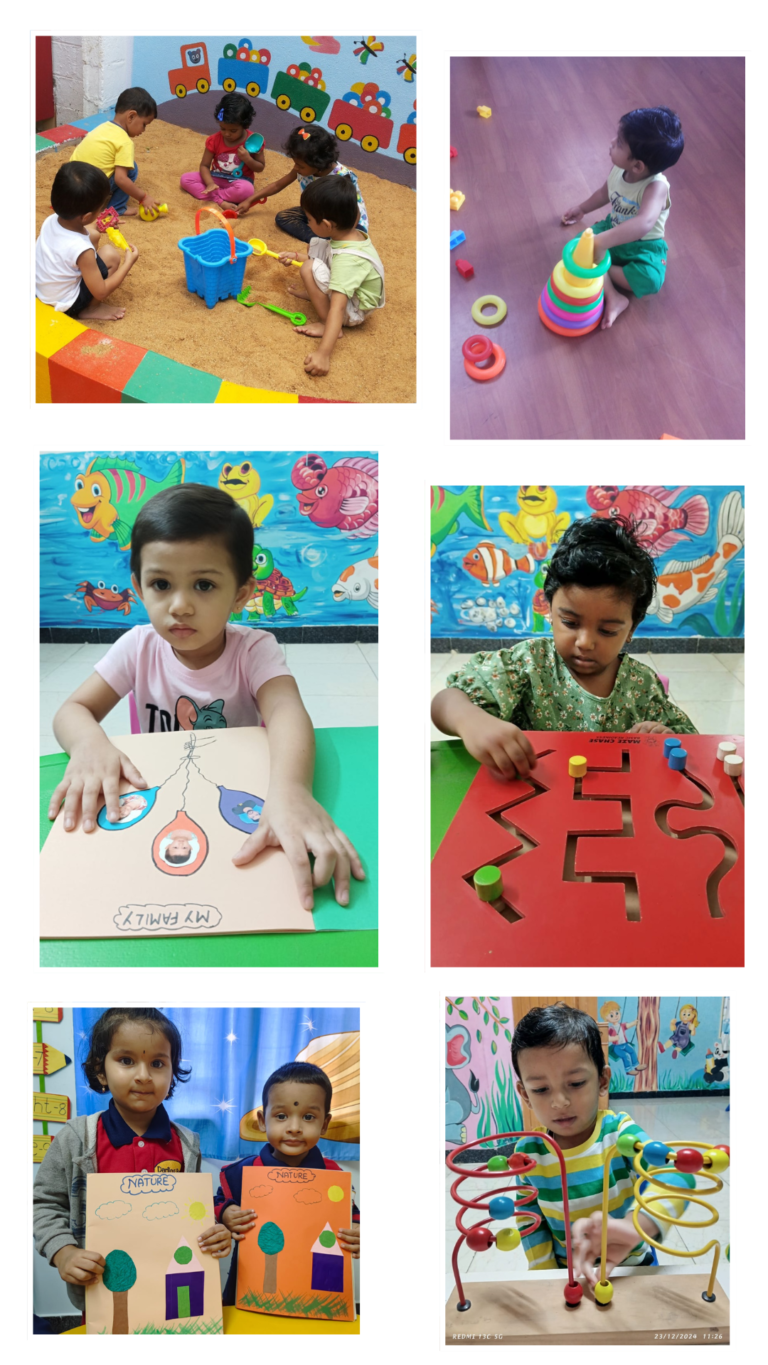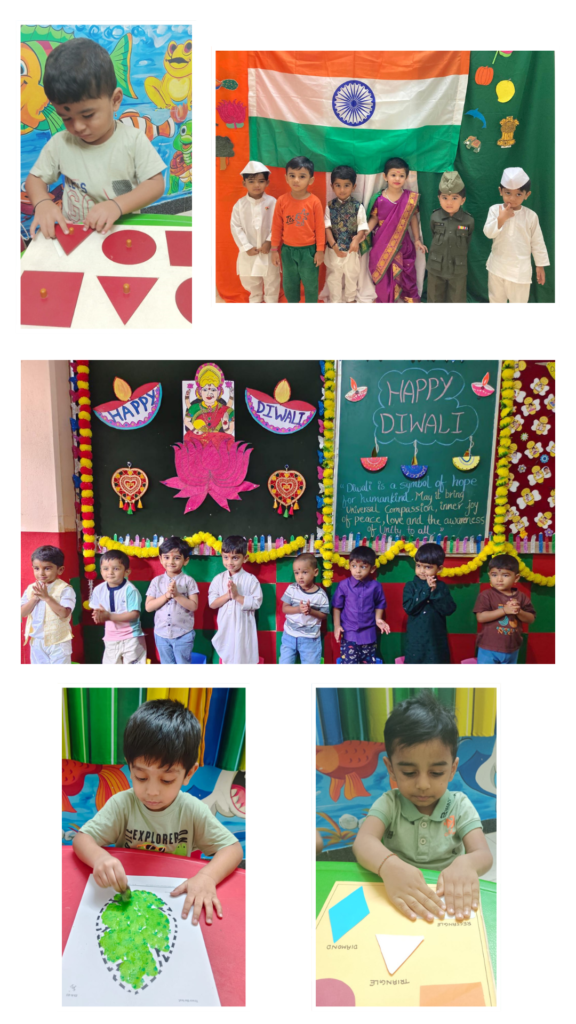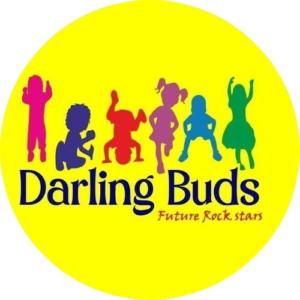Playgroup Program: 2 to 3 years
Playgroup Program at Darling Buds Preschool Fosters every child's social and emotional development through interactive play, encouraging physical activity, building fine and gross motor skills, stimulating imagination and creativity, enhancing language skills, and promoting confidence through peer interaction and exploration in a supportive environment.
Playgroup at preschools organize activities where, children play and learn together with their peers and teachers, which can develop skills like - Social skills, Communication skills, Motor skills and Relationship-building skills.
The benefits of playgroup program are:
• Develop Confidence.
• Develop Social Skill.
• Build Motor Skills.
• Speech Development.
• Developing imaginary and creative skills.
• Vocabulary building.
• Making kids a Little Independent.
• To Begin with Language development.
• Happy and Occupied kids.
• Exposure to new environment.
• Set up a routine and style.
Methodology in Playgroup Program
• Play way method
This method aims the child to have fun and practical experience while learning.
• Multisensory instruction
This method involves using multiple senses at once to help children learn. For example, a teacher might use touch, movement, sight, and hearing to teach information.
• Interactive activities
Children enjoy variety, so they're more likely to be interested in lessons that include hands-on activities.
• Individualized instruction
Since every child learns differently, early childhood educators should provide individualized instruction to ensure that each child gets attention.
• Role playing
Exploring information in a conversational setting can help students understand the material with more nuance and perspective.
Darling Buds Methodology includes Montessori and Kindergarten an Integrated curriculum which is Practical, Physical, emotional creative and conceptualization in nature.

Playgroup Activities
Play group Activities are:
1. Sensory activities – Sensory play like Use playdough, slime, bins of pom-poms, water, soapy bubbles, and more.
2. Cooking - Cooking and pretend cooking can help children learn mathematical concepts, home safety, and social interaction.
3. Creative moments – Art and craft or give children materials like scraps of fabric, cushions, pencils, and paper plates, and let them use to create anything as they imagine.
4. Constructive play – Guide them to build, construct or complete the task to make them understand the target jobs or develop problem-solving skills.
5. Identify one’s emotions - Children can have various activities related to emotions like story, rhyme, songs, activities, art and craft. All these would help them to learn and identify once emotions.
6. Play time – To Balance their energy levels and have confidence to develop perseverance and curiosity. Play-based learning is an educational approach that incorporates play as a central component of the learning process.
7. Playful puzzle - Children can be introduced and create a fundamental interest in English, Environmental Science and Math, Geometric shapes and Colors.
8. Montessori system of education – Life skills or EPL activities. Arranging, Sorting, Identifying, Fine and Gross motor skills.
9. Co-curricular activities -
• Concept or Theme based activities
• Rhymes, Song, Story, Dramatic and Role Play
• Dance and Music
• Nature, Sand and Water Play
10. Physical or Sports Activities – Yoga, Meditation, Outdoor play, games, Exercise.

